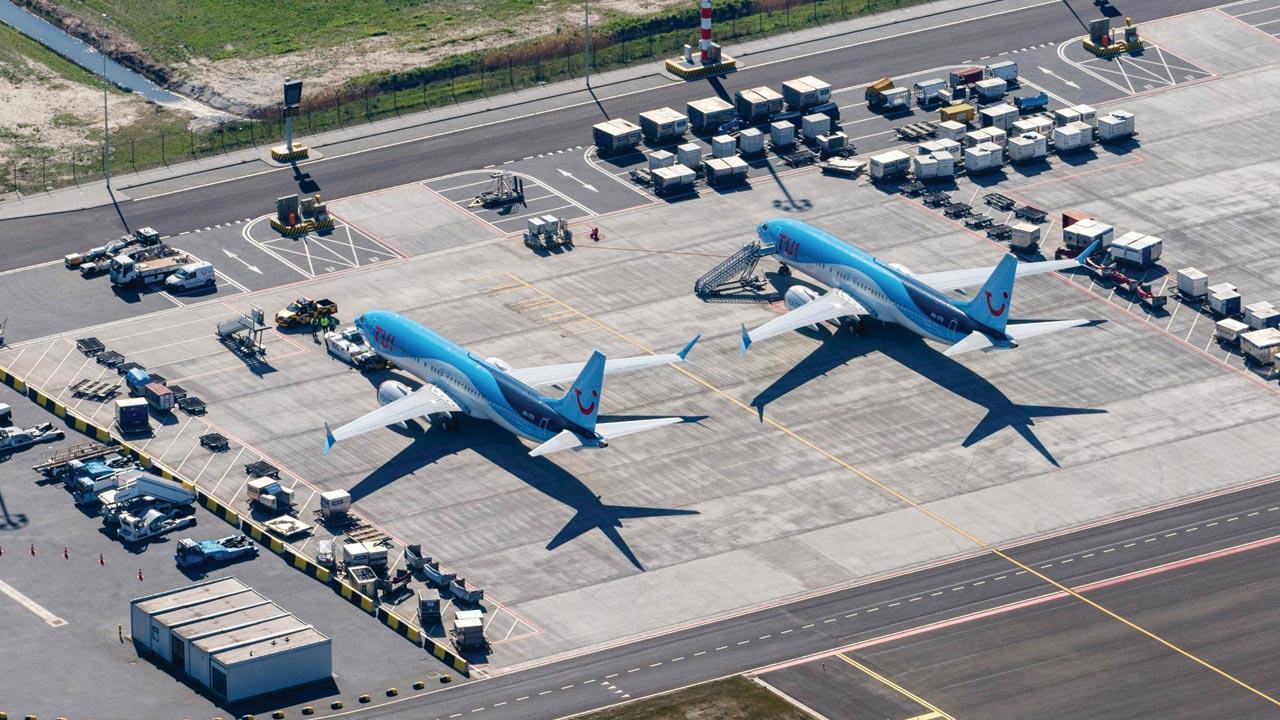An economic system that rewards money-making over excellence creates a culture where safety doesn’t count. That’s why two brand new planes crashed in 2018

Two Boeing 737 Max grounded at Amsterdam Airport Schiphol. File pic
 Let me ask you a question, not a difficult one. Would you put your money into a company that was performing stunningly well in the stock exchange but had recently been exposed as unethical, corrupt and deceptive, compromising quality and safety by taking shortcuts and making a dangerous product?
Let me ask you a question, not a difficult one. Would you put your money into a company that was performing stunningly well in the stock exchange but had recently been exposed as unethical, corrupt and deceptive, compromising quality and safety by taking shortcuts and making a dangerous product?
ADVERTISEMENT
Yes, you would, I know. You don’t care if the company has the morality of Satan himself as long as your investment makes you richer. We’re all big boys, you’d tell me, we understand that corporations are driven by profit and nothing is golden even if it shines. One shouldn’t judge a company from one scandal, you say; everyone has secrets, everyone makes mistakes.
As an example, you’d tell me that earlier this month US regulators detected cancer-causing chrysotile fibres, a type of asbestos, in a sample. Did I really believe people would stop using that wonderful J&J baby powder because of that?
But what if a corporation’s dark deeds led to hundreds of people dying? Would you still back that horse? I’m thinking of Seattle-based Boeing, once makers of the world’s safest airplanes, and famous for its focus on engineering and excellence. Until its new CEO decided that money was more important.
In the five months after the company launched its Boeing 737 Max in 2018, two planes crashed shortly after takeoff; 346 people died. The years-long investigation that followed revealed that Boeing had known in detail about this fatal flaw but had made a decision to keep quiet about it so that their sales and share value would not suffer.
Even after news of the first crash in 2018—a Lion Air plane taking off from Indonesia—Boeing refused to ground the 737 Max fleet. They blamed the pilot, calling the airline “stupid” in an internal memo.
Would you put your money into this company’s stocks today?
I’ve always argued with aviophobes, citing statistics proving that you’re more likely to die crossing a road than flying. That’s still true. But what happened at Boeing was not the result of bad engineering but human greed. The company decided that excellence cost too much money and took too much time; they needed quicker returns.
That’s not a quality of just Boeing but every other corporation in a capitalist economic system that glorifies money-making as a worthwhile goal in itself. The trait that made Boeing greedy exists in every other corporation, whatever it manufactures.
Makes me want to travel by horse carriage the rest of my life.
The story in brief—Boeing was once a revered, iconic American company that respected and valued engineering excellence. Its thousands of employees and the aircraft they made were America’s pride. However, when the European Airbus Corporation began to lead in market share, Boeing decided to grow by merging with McDonnell Douglas, another aviation company though with a dramatically different culture.
That company’s CEO, Harry Stonecipher, ended up as Boeing’s CEO. He disdained engineers as arrogant and went on a cost-cutting spree. A company where anyone could air a concern and everyone learned from each other’s mistakes became one where speaking up could cost you your job.
When Airbus launched a brand new fuel-efficient plane called AIRBUSneo, Boeing decided against developing their own new fuel-efficient plane—it would take a decade and cost billions.
Instead, they decided to fit more fuel-efficient engines on their old Boeing 737 planes which had been flying since 1967.
But the new engines were larger and heavier and had to be fitted higher and more forward. This created a flight problem when the plane was climbing steeply. To counter this, Boeing installed a small piece of software called the Manoeuvring Characteristics Augmentation System (MCAS) that would override the pilot and push the nose down if it thought the plane’s angle was too sharp.
Boeing decided to keep MCAS secret from everyone, including pilots, because revealing it would have meant costly simulator retraining for the world’s 34,000 or so pilots. But it was MCAS that kicked in after the Lion Air and the Ethiopian Air planes took off, pushing the planes’ noses down no matter what the pilots did to climb.
No one knew it was the MCAS. No one had told them. Death was quick and devastating.
It is a sign of the times that Boeing, which lost $11 billion in two days on Wall Street back then and was fined $250 billion, is thriving again. Mumbai-based startup Akasa Air recently announced an order for 72 Boeing 737s worth $9 billion. SpiceJet announced that it would resume taking deliveries from its 155-strong order.
As for me, I wonder what new secrets airplane manufacturers are hiding. Should you even fly at all? You probably won’t be able to avoid it but here’s my advice—Don’t relax.
Don’t sit back.
Don’t enjoy the flight.
Here, viewed from there. C Y Gopinath, in Bangkok, throws unique light and shadows on Mumbai, the city that raised him. You can reach him at cygopi@gmail.com
Send your feedback to mailbag@mid-day.com
The views expressed in this column are the individual’s and don’t represent those of the paper
 Subscribe today by clicking the link and stay updated with the latest news!" Click here!
Subscribe today by clicking the link and stay updated with the latest news!" Click here!







